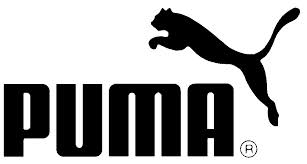By Matt Scott
February 26 – Puma, Europe’s second-largest sportswear manufacturer, has suffered a damaging drop in sales amid what its chief executive, Björn Gulden, has described as “a challenging year”.
The Bavaria-based company announced its five-year partnership with the Premier League side Arsenal last month, and also sponsors the Milan forward Mario Balotelli. But despite the glitz of its Arsenal launch, these are troubled times for Puma.
Sales fell 4.7% year-on-year in the last quarter of 2013, the firm has announced, causing its share price to fall to a 12-month low of €203.50 this week. That compares to the 52-week high of €249.40 last March, wiping €700 million off the company’s value over the period.
The company announced “special items” – one-off payments and impairments – worth €129 million. The company shed a number of its underperforming retail outlets in 2013 and on the plus side this has led to an improved free-cash-flow position, taking earnings before interest and tax to €191.4 million for the 12 months.
Gulden, who took over as chief executive last April, has decided to return the firm back to its core activity as a sportswear brand and away from what was an ill-fated foray into fashion under his forebears. The company will hang its hat on a new slogan, Forever Faster, after strengthening its ties with six-times Olympic sprint champion Usain Bolt.
“2013 has been a challenging year for PUMA and there is no doubt that we have issues in terms of lack of brand heat, commercial products and desirable distribution,” said Gulden. “Nonetheless, PUMA is a great brand and with our new brand positioning as the Fastest Sports Brand in the World, we have a clear vision of where we want to go.
“Forever Faster is not only our new brand statement, it is also our new mindset. This is not a quick fix, but 2014 marks the start of the turnaround’.”
Even so the sponsorship with the Premier League side Arsenal might be considered something of a gamble. The deal is widely believed to be worth £150 million over five years, meaning it is committing more than 1% of its entire €3 billion annual revenues to a single marketing arrangement.
This comes at a time when the revenue outlook for the company does not appear completely positive. Sales in Europe, the Middle East and Africa fell 7.6% amid “challenging economic conditions” in the region. This coincided with weakening euro-terms revenues from places like Russia, Japan and Turkey where, despite growing sales, enfeebled currencies caused a dip in real-terms income. With those currencies since falling further against the euro, Puma faces similar difficulties in the months ahead.
Contact the writer of this story at moc.l1745251578labto1745251578ofdlr1745251578owedi1745251578sni@t1745251578tocs.1745251578ttam1745251578

